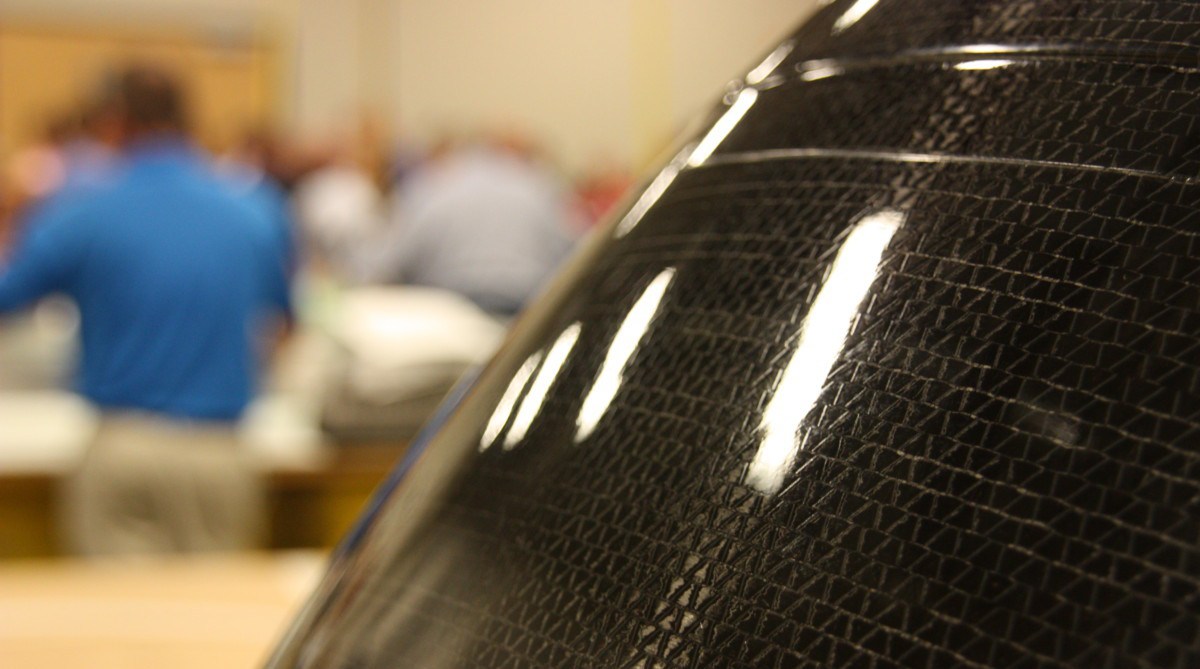
The Institute for Advanced Composites Manufacturing Innovation, IACMI, has launched a project aimed at decreasing the cost of manufacture while increasing the design flexibility for automotive composites.
Developed in partnership with DuPont Performance Materials, Fibrtec Inc and Purdue University, the new IACMI project will address the problems of cost and design constraints in automotive applications through, it says, ‘a fundamentally different approach to the manufacturing of carbon fiber composites versus those currently in use today’.
The work will make use of Fibrtec’s flexible coated tow formed into flexible fabric prepregs using a rapid fabric formation (RFF) technology along with a polyamide resin from DuPont. The final component could benefit from increased production speeds of the tow manufacturing process and the fabric forming process resulting in a lower cost of manufacture. According to IACMI, composite parts made by this process have lower voids and improved mechanical properties when consolidated by traditional techniques. The flexible fabric prepregs have also been shown to have good draping behavior in molding experiments. Researchers in the Purdue University Composites Manufacturing and Simulation Center will work with the team to model and validate drapability and part performance.
‘By leveraging the strengths of all project partners, we have the potential to create a unique commercially viable path to high volume, low cost thermoplastic composite automotive components,’ said Jan Sawgle, DuPont Performance Materials, project manager.
This story uses material from IACMI, with editorial changes made by Materials Today. The views expressed in this article do not necessarily represent those of Elsevier.



